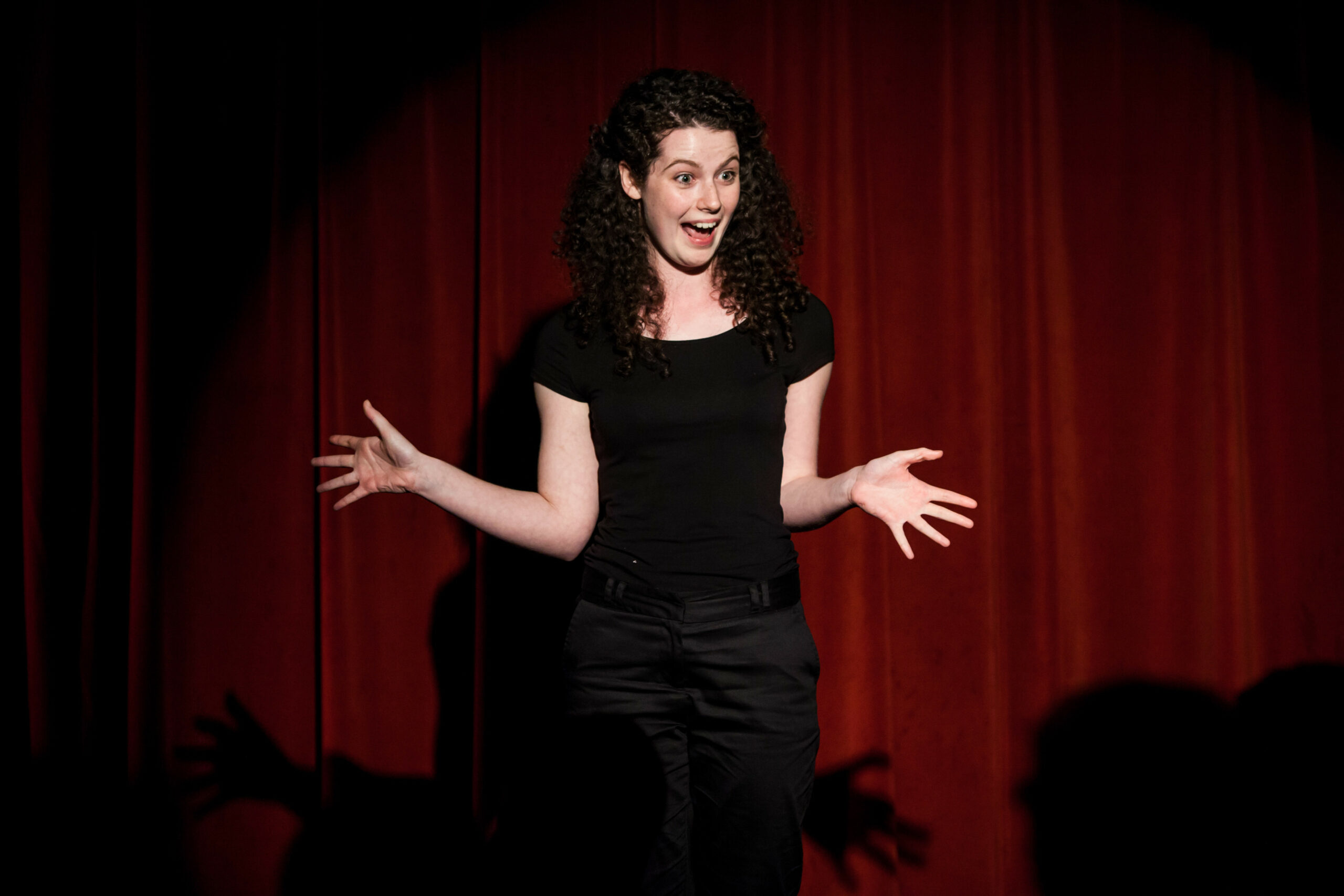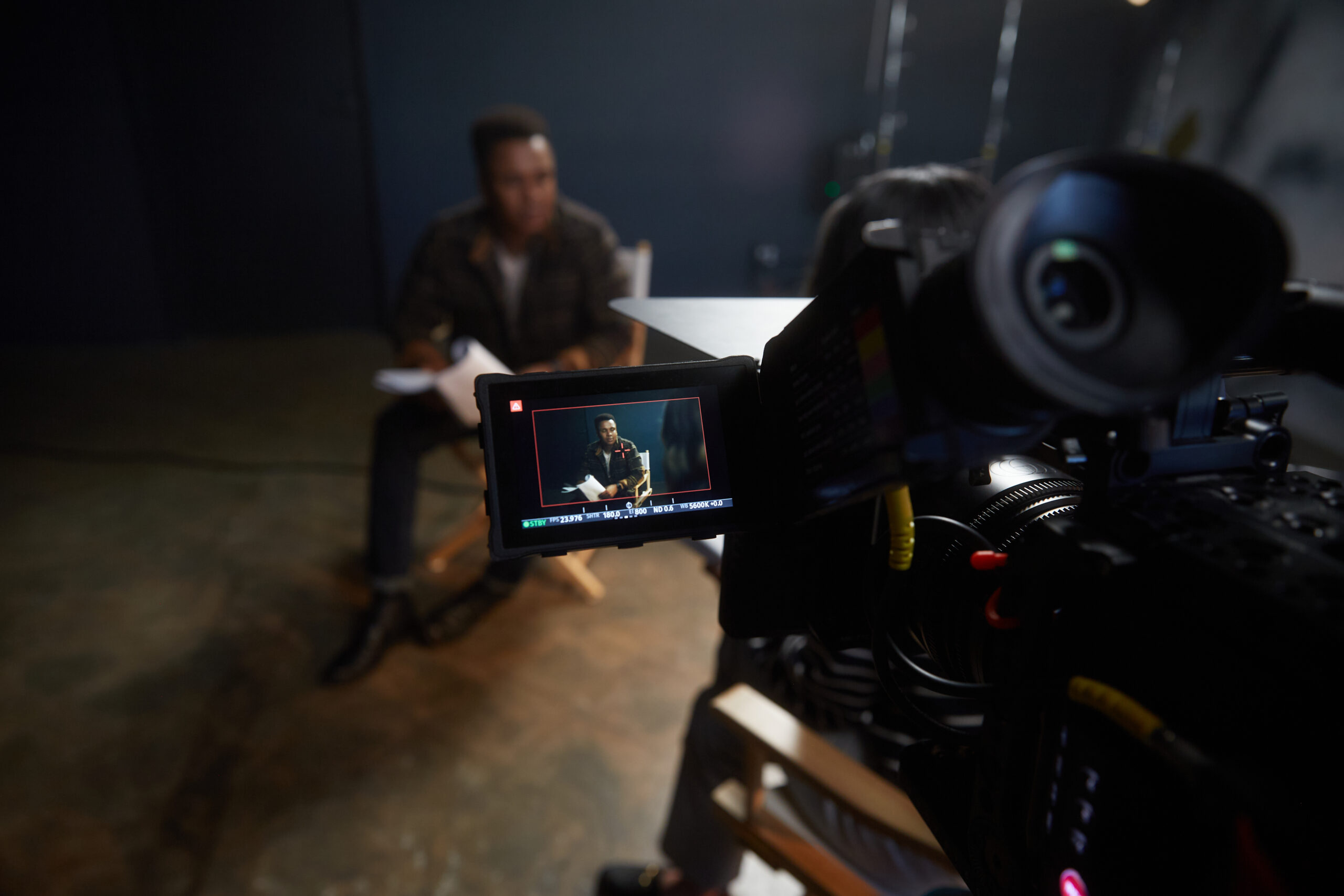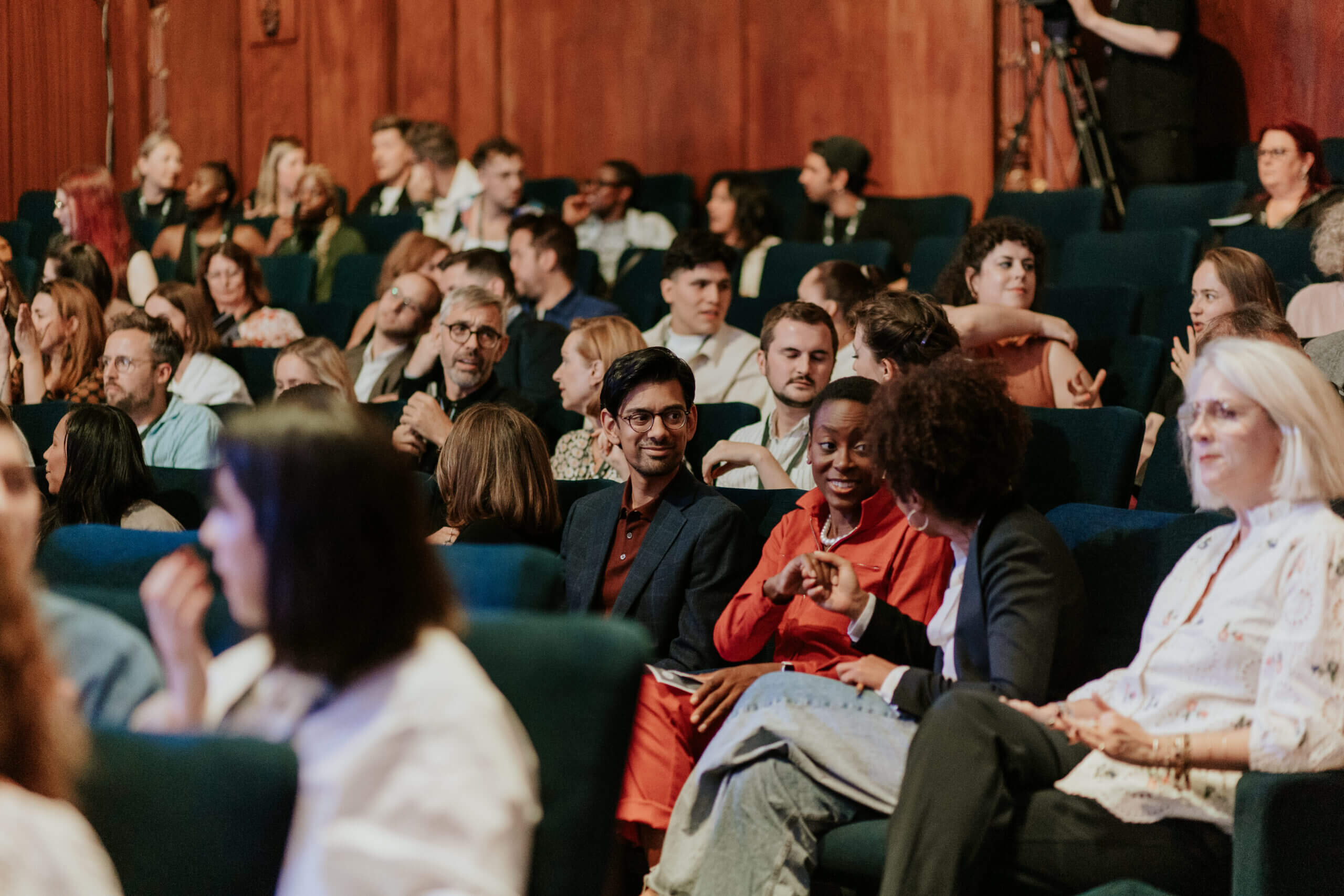Where actors are required to put on a new character with every role, performing standup is all about developing a single consistent ‘persona’ to adopt and grow each time you take to the stage.
Developing your comedy persona is the lynchpin to becoming a good comedian. In short, it is learning how to be you on stage and it can require years in the making. For many comics, it’s often an exaggeration of their actual persona, while for some comics their onstage persona can be a million miles from what they are really like.
Firstly, Here’s What It’s Not…
It’s not you playing the part of ‘a comedian’. Developing a comedy persona is also not to be confused with being a comedy character. And it’s most definitely not you being the pale imitation of a famous comedian you admire. The trick to being a stand up is that people believe they are getting the real McCoy and ironically that your act is not an “act”.
Here are a few insights to help you get started:
1. Don’t Panic
Just as the first draft of a novel is never the published version, finding your persona is a creative process and the chances are you won’t find it straight away. Don’t panic. The trick is to keep gigging and keep writing. Gig enough, write enough and you will eventually find your voice. After all, part of the process is learning how you come across on stage and you won’t know that until you start doing it!
2. Allow for Change
As you develop your comedy persona, you may find it changes completely and goes down a totally different track. That’s fine. Richard Pryor is probably the best example of a comic who started down one track (trying to be a new Bill Cosby) then had what he termed an epiphany, walked off stage, only to return as a radically different and radically influential stand up comedian.
3. Find your Voice
As a comic you want to find your voice. For some comics this is obvious. For others it’s not so clear. As anyone who’s tried it can tell you, sitting down to write jokes is hard. If you’re trying to find your voice and can’t for the life of you think what to write about, then a great way to get round that creative block is to write anything EXCEPT comedy. And I mean write anything: a play, a novel, a blog, an article, a short story. It doesn’t matter – just write. And what you’ll find is that you will inadvertently be drawn to stuff you want to write about i.e. your voice. Even better, you can invariably cannibalise your literary/journalistic masterpiece into stand up. Thanks to a blog I wrote about working for the Japanese car company, Mazda, I got a whole stand up routine out of it. Thanks to my (sadly unpublished) novel I got material about those most unlikely of comedy subjects, Stefan Zweig, Wolf Haas and the French classic film, Belle de Jour. Unlikely topics for comedy in the UK but nonetheless very me.
4. Allow Jokes to Breathe
Circuit comics in the UK tend to cut out any flab in their sets. I used to go one step further and as soon as I finished a joke would move straight on to another. Not only did this not allow the audience to laugh (which after all is the whole point of the exercise), I didn’t let the jokes breathe. In other words, I didn’t allow myself to react to what I’d just said. But by allowing your jokes to breathe you are also allowing your persona to come to life. And often in comedy it’s not what you’ve said that makes it really funny but your attitude to it. Think of Basil Fawlty in Fawlty Towers, Dougal in Father Ted or Sister Michael in Derry Girls and how they react to everything. It’s their reaction that makes a funny situation inherently funnier.
Now I allow my jokes to breathe and often some of the biggest laughs I get are from the audience reacting to how I am reacting to what I said. As a result, the audience feel they are in on the joke and consequently become more invested in your act. After all, nothing is more electrifying during a live performance than when the energy bounces back and forth from the performer to the audience and back again. There’s a reason why you get standing ovations at live stage performances, very rarely in the cinema, no matter how good the film!
5. Relax
This is easier said than done, particularly if it is a big gig. There’s only one thing that helps here and that is experience. In other words, you having a lot of gigs under your belt and plenty of material to hand. The more confident you are of your skills as a comedian, the more sure you are of your material, the more you can relax on stage, the more you can be you and more importantly, enjoy being you on stage. As a general rule, audiences always enjoy watching someone having fun on stage. I always used to be funnier at my own gigs, primarily because I was so relaxed. After all, no matter how bad the gig went, I was highly unlikely to sack myself! It was when I was able to be as relaxed and be ‘myself’ at other gigs that I knew my act had stepped up a gear.
6. Use Criticism to Your Advantage
The more defined your comedy persona is, the more chance you’ll find some people love your act – and some people not so much. What you have to remember here is that the very reasons some people won’t like your act are the exact same reasons why some people love it. That’s why it’s important that the comedy persona you have on stage is the one you want to have. As with any criticism (and anyone with access to Twitter now is a critic), just remember that if you don’t think it’s a valid criticism then ignore it. If you think they have a point, then do something about it.
Maureen Younger works as a stand up comedian, writer and actor. A talented linguist, Maureen has also performed stand up in German and French. Gigs range from being the support act for the entire West End run of The Naked Magicians; supporting Shazia Mirza on tour; to performing at the Jamaica vs The World shows at the Shepherds Bush Empire. As an actor, her roles range from playing an angry German housewife in Band of Brothers to workshopping Philoctetes at the National Theatre Studio. Maureen has also written articles for various online magazines including Standard Issue Magazine, Her Edit and Psychologies Life Lab.
Connect with Maureen on Twitter, Facebook, YouTube and Instagram.












